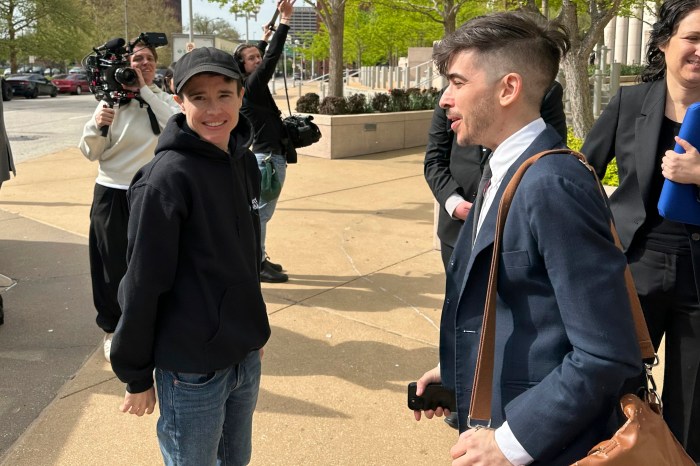By: ARTHUR S. LEONARD | The Massachusetts Supreme Judicial Court, the state's highest, announced by unanimous vote on December 27 that the two houses of the state Legislature, meeting together as a Constitutional Convention, had a “constitutional duty to vote, by the yeas and nays, on the merits” of the pending voter initiative amendment regarding the future of gay marriage there before it recessed on January 2.
Citizens opposed to the Court's historic 2003 Goodridge decision, which made gay marriage a reality in Massachusetts in May 2004, are seeking to hold a referendum on whether to overturn it in November 2008.
The Court concluded, however, that there was no remedy available to the plaintiffs, a group of citizens who support the amendment and claim their constitutional rights are being violated by the failure to put it on the ballot. Governor Mitt Romney, the outgoing governor who declined to seek a second term this past November in order to wage a bid for the 2008 Republican presidential nomination, strongly supported the plaintiffs.
Writing for the unanimous court, Justice John M. Greaney noted that the Constitutional Convention for the 2005-2006 session of the Legislature has met three times since the secretary of state certified that the proposed amendment received enough valid signatures, 170,000-more than the threshold of three percent of the votes cast in the previous election for governor-and each time, most recently on November 9, it adjourned without voting on its merits.
Under the state Constitution, if at least a quarter of the legislators support the amendment, it must be placed before the Constitutional Convention during the 2007-2008 session. If identical language is approved by at least a quarter of the legislators on that second vote, the measure would be placed on the next general election ballot-in November 2008.
Knowing that more than a quarter of the legislators support the amendment, legislative leaders who oppose it had managed to put off a vote on the merits. At the November 9 session, a roll call vote was taken to adjourn the session to January 2, the last date of the 2005-2006 Legislature, in the afternoon, with the expectation that a brief session would be held and adjournment would again win approval, thus effectively killing the measure.
The Court found that this procedure directly violated the constitutional method for dealing with voter-initiated amendments, which it quoted from the state Constitution. The seven justices specifically refuted the idea, advanced by same-sex marriage supporters, that the Constitution does not mandate a vote but merely requires that if a vote is taken it be a recorded roll-call.
If any doubt were left by the constitutional language, which Justice Greaney characterized as “clear,” “the records of the drafters' debates,” he wrote, quoting from statements in the published history of the Constitution, “indicate that they did not intend a simple majority of the joint session to have the power effectively to block progress of an initiative.”
But, said Greaney, the Court was powerless to act. It could not order the Legislature to take a vote, but could do no more than make clear, if there were any doubts, that there is a duty to take a vote on the amendment. The only remedy, said the Court, would be to take the matter to the voters the next time the incumbent Legislature was up for election, in 2008, and to campaign against incumbents who voted to adjourn rather than vote.
In a ruling in which the Court could have simply noted its inability to mandate action by the state Legislature, it instead laid out a potent political argument for why lawmakers had a duty to duty to take action on their own. The fact that the action that the Legislature took on Tuesday in response could in time overturn the Court's own constitutional finding is one of history's ironies.

































